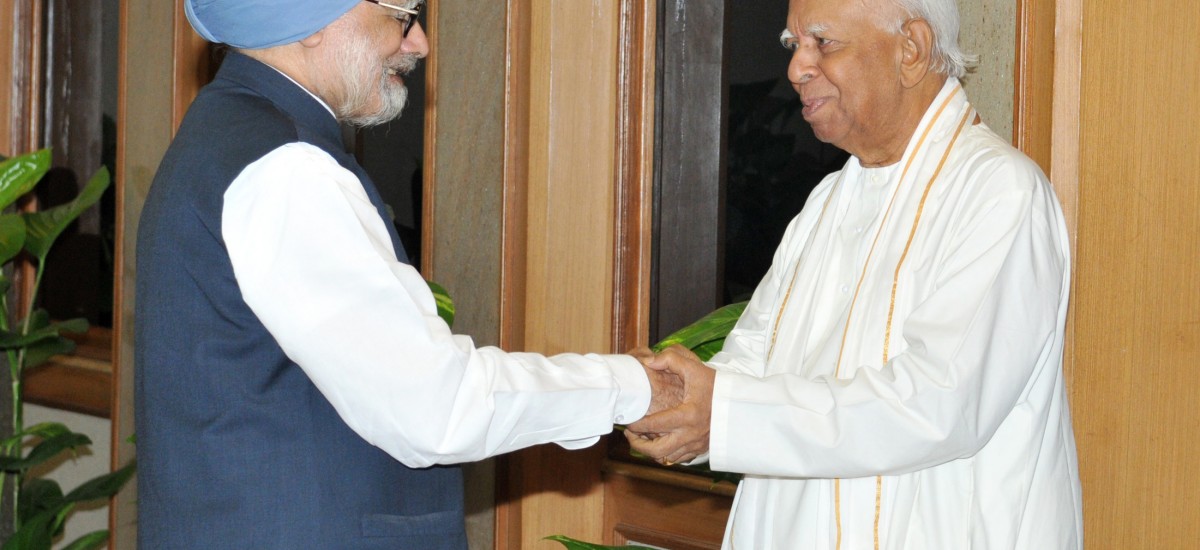Image courtesy DBS Jeyaraj
It appears to be widely believed in our country that Indian foreign policy, particularly in relation to Sri Lanka, is shaped by the ethnic politics of Sri Lanka. Disseminating such a belief may serve the interests of various political leaders in diverse ways. It may help to sustain the morale of Tamils in Sri Lanka and their leaders, and the ego of the leaders of Tamil Nadu who never had a major role in the resolution of our national question. It may serve the political interests of those Sri Lankans political leaders who may need to explain to their voters why they have failed to overcome Tamil resistance. It may also serve the interests of the Union Government in India by helping to maintain pressure on the Sri Lanka government.
It is to be expected that there will be some sympathy in Tamil Nadu, and even in the rest of India, for the plight of Sri Lankan Tamils, but surely even Tamils in India will be more interested in their own welfare. This is evident in the positions they take on conflict issues of direct concern to them, such as fishing rights in the Palk Straights, imports and exports( e.g. of tea, tobacco, spices , textiles ,pharmaceuticals and manufactured goods ), access to and control of Katcha Theevu , etc. It will be political suicide for any Indian political leader to be seen as being more interested in the welfare of Tamils in Sri Lanka than in that of their own population.
In any case the influence of Tamil Nadu and Tamils within India on the policies of the Centre in India is modest. They do form a significant proportion of the total population of India, but that proportion is less than that of Tamils in Sri Lanka in relation to the total population of Sri Lanka. Moreover, Sri Lanka has nine provinces of which one is overwhelmingly Tamil, one other has a clear majority of Tamil speakers, and two or three others have numerically significant Tamil speaking populations. In contrast India has over three times the number of states and autonomous regions as the number of provinces in Sri Lanka, but Tamils have overwhelming presence in only one state and are dominant in only one autonomous region. That Sri Lankan Tamil concerns drive Tamil Nadu politics, and that Tamil Nadu politics shape the relevant aspects of Indian foreign policy are myths.
These myths are proclaimed by some Indian, Tamil Nadu and Sri Lankan politicians when it suits them. But, as in many other myths, they may be a residual trace of truth in these. This relates to the 13th Amendment, which was the outcome of Indo Sri Lanka negotiations, and cannot be unilaterally repudiated. It will be a humiliation for India if Sri Lanka does that. Even the extended failure to fully implement it is an embarrassment to India. More over the 13th Amendment remains an integral part of our constitution. We have no justification to further delay its full implementation.
There has been long, inclusive and often acrimonious debate on whether the 13th Amendment prescribes too much devolution or too little. Agreement on this issue is unlikely and the debate is therefore futile. What needs to be done is to suspend the debate for a few years on whether it should be 13A+ or 13A-, and to implement 13A as it is set out in our Constitution. Those who drafted 13A a quarter of the century ago thought that it would help to settle our ethnic problem. We cannot prescribe for the indefinite future but, perhaps, it may help to settle an immediate problem and we will have peace on this issue, and a measure of International good will too for a few years. If so, the debate between 13A+ and 13A- may become a non – issue. This may upset sections of the Tamil Diaspora and some hard liners within the ruling party, but we cannot and need not please everyone.
Settling the 13A issue will enable us to focus more amicably on other outstanding issues such as justice for war victims. All ethnicity related issues may not be resolved in one step, but it will be a great step forward. Any agreement endorsed by the President as well as the TNA will be good preparation for the forthcoming Human Rights Council meeting in Geneva as well as for the resolution of the remaining outstanding issues in due course.

